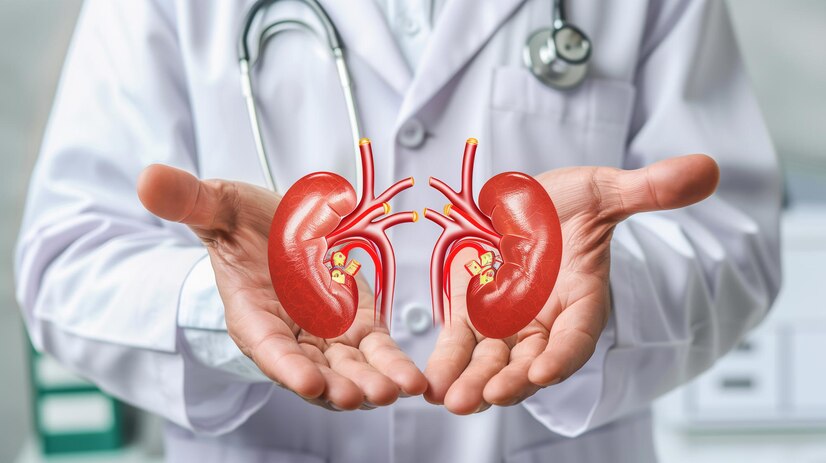
Kidney stones are a common condition that can cause significant pain and discomfort. These small, hard deposits formed from minerals and salts in the kidneys can vary in size and affect anyone at any age. Fortunately, urologists are specialists trained to diagnose and treat kidney stones effectively. This blog will explore how urologists treat kidney stones, covering everything from diagnosis to recovery.
What Are Kidney Stones?
Kidney stones, or renal calculi, are solid masses of crystals forming in the kidneys. They can be as small as a grain of sand or as large as a golf ball. The most common types of kidney stones include:
- Calcium Stones are the most common and often form from calcium oxalate or phosphate.
- Struvite Stones: These stones can develop in response to a urinary tract infection and are often larger and more irregular in shape.
- Uric Acid Stones: These can occur in dehydrated people who eat a high-protein diet or have certain metabolic conditions.
- Cystine Stones: These are rare and form in people with a genetic disorder called cystinuria.
Signs and Symptoms
Kidney stones may not cause symptoms until they move into the ureters, the tubes connecting the kidneys to the bladder. Common symptoms include:
- Severe pain in the back, side, or abdomen
- Pain during urination
- Blood in the urine
- Nausea and vomiting
- Frequent urination or an urgent need to urinate
Diagnosis of Kidney Stones
When you visit a urologist with symptoms suggestive of kidney stones, they will typically follow these diagnostic steps:
- Medical History: The urologist will ask about your symptoms, medical history, and family history of kidney stones.
- Physical Examination: A physical exam will help assess the pain and other symptoms you may be experiencing.
- Imaging Tests: Imaging techniques such as X-rays, ultrasounds, or CT scans are often employed to visualize the stones’ location, size, and number. CT scans are particularly useful as they can detect even small rocks.
- Urine and Blood Tests: Urinalysis can help identify crystals and blood in the urine, while blood tests can check kidney function and electrolyte levels.
Treatment Options
Once kidney stones are diagnosed, the urologist will determine the best treatment based on the size, type, and location of the rocks and the severity of the symptoms. Treatment options may include:
1. Conservative Management
Conservative management is often recommended for small kidney stones (typically less than 5 mm). This may include:
- Hydration: Drinking plenty of fluids can help flush out small stones naturally. A urologist often recommends drinking at least 2-3 liters daily.
- Pain Management: Over-the-counter pain relievers, such as ibuprofen or acetaminophen, can help manage discomfort while waiting for the stone to pass.
2. Medical Expulsive Therapy
In some cases, a urologist may prescribe medications to help facilitate the passage of kidney stones. Alpha-blockers like tamsulosin can relax the ureter muscles, making it easier for stones to pass.
3. Extracorporeal Shock Wave Lithotripsy (ESWL)
If stones are larger (typically 5 mm or larger) and cause significant pain or blockage, the urologist may recommend ESWL. This non-invasive procedure uses shock waves to break the stones into smaller fragments that can be easily passed. The process usually involves:
- Preparation: The patient may be required to fast for a few hours before the procedure.
- Procedure: The patient lies on a special table, and shock waves are directed at the stones while monitoring with imaging techniques. The procedure typically takes 30-60 minutes, and patients can often go home the same day.
4. Ureteroscopy
A urologist may use ureteroscopy for stones in the ureters or bladder. This minimally invasive procedure involves:
- Inserting a Thin Tube: To locate the stone, a small scope (ureteroscope) is inserted through the urethra and bladder into the ureters.
- Stone Removal or Fragmentation: The urologist can remove the stone using specialized tools or break it into smaller pieces using a laser.
5. Percutaneous Nephrolithotomy (PCNL)
For large or complex stones (usually larger than 2 cm), PCNL may be necessary. This procedure involves:
- Creating a Small Incision: The urologist makes a small incision in the back and inserts a nephroscope directly into the kidney to access and remove the stone.
- Post-Operative Care: Patients may require a short hospital stay for recovery.
Recovery and Follow-Up
After treatment, recovery will vary depending on the procedure performed:
- Post-Procedure Care: Patients may experience discomfort, bruising, or blood in the urine, especially after surgical procedures. It’s important to follow the urologist’s post-operative care instructions carefully.
- Follow-Up Appointments: Follow-up visits are essential to monitor recovery and ensure that stones do not form again. The urologist may recommend further tests or lifestyle changes to help prevent future stones.
Prevention of Kidney Stones
To reduce the risk of developing kidney stones, urologists often recommend the following:
- Stay Hydrated: Drinking plenty of water helps dilute substances that can form stones.
- Dietary Changes: Depending on the type of stone, dietary adjustments may be necessary. For example, reducing sodium intake, limiting oxalate-rich foods (such as spinach and nuts), and moderating protein consumption can help.
- Medications: Medications may sometimes be prescribed to prevent stones from forming.
Conclusion
Kidney stones can be painful and disruptive, but with the expertise of urologists at SSurocare, effective diagnosis and treatment options, including kidney stone laser treatment in Bangalore, are available. By understanding the signs and symptoms, seeking timely medical attention, and following the recommended treatment plan, individuals can manage kidney stones successfully and reduce the risk of recurrence. If you suspect you have kidney stones, don’t hesitate to consult a urologist at SSurocare for guidance and support. Your health and well-being are worth it!






